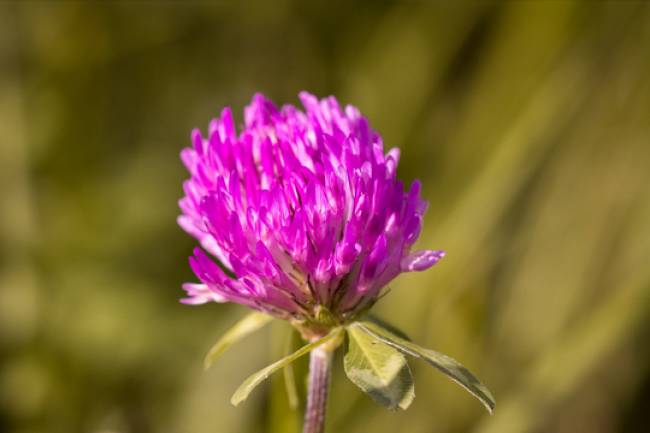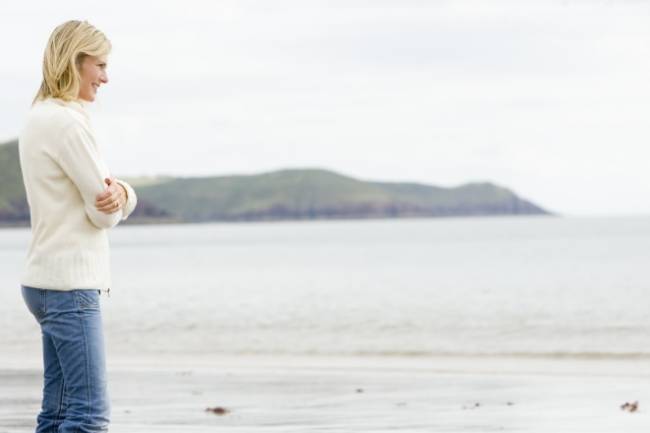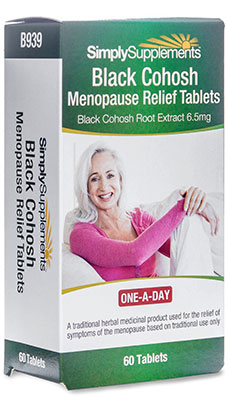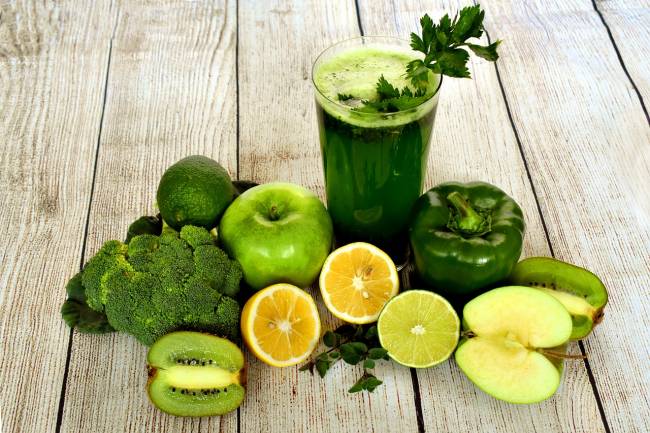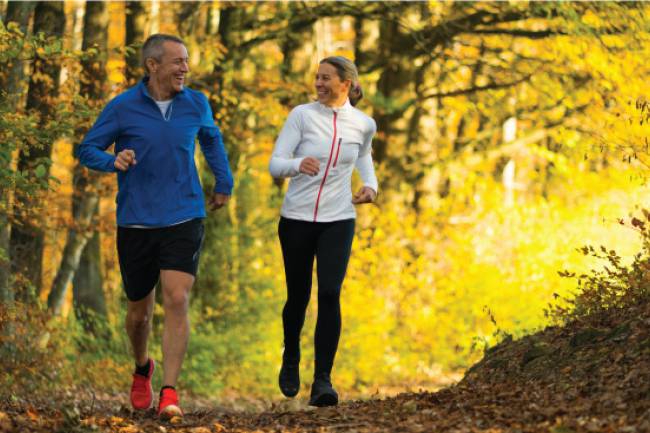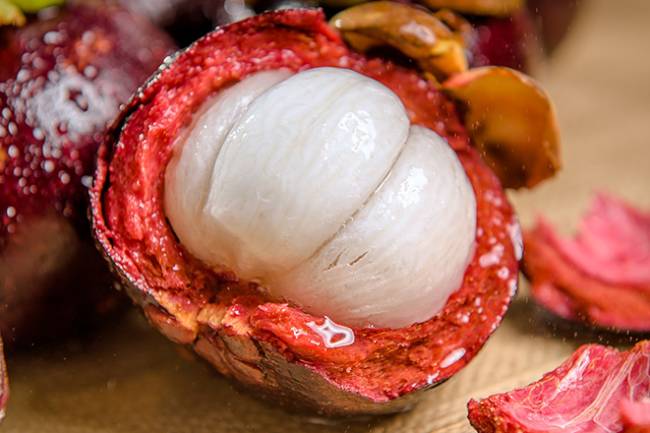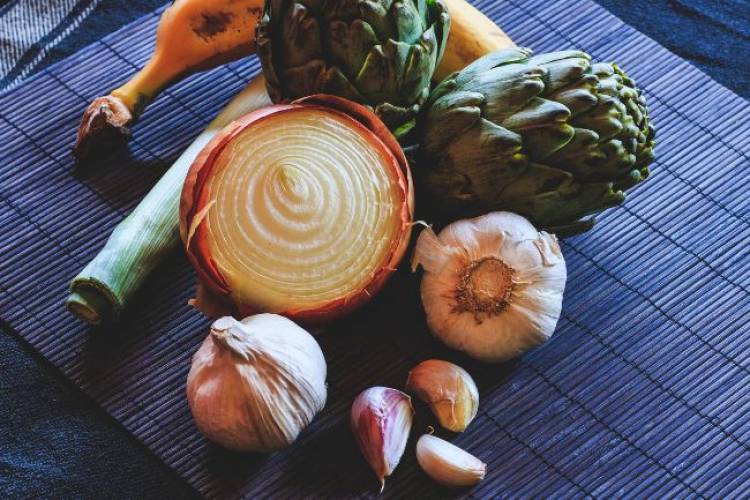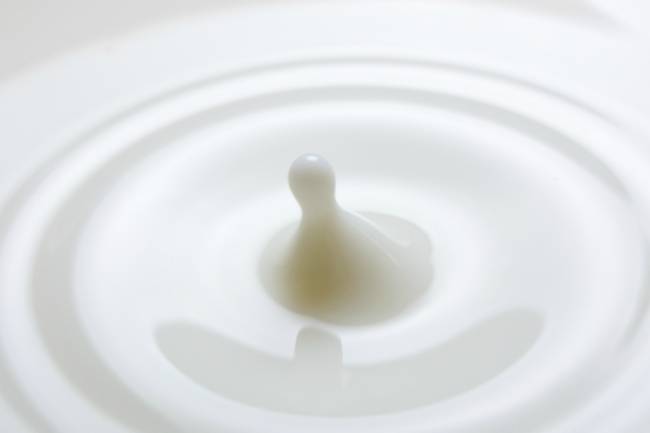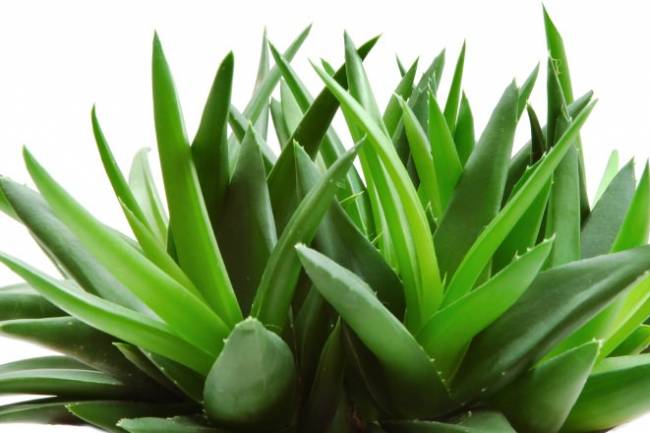5 Natural Remedies For Hot Flushes

For some women, symptoms of the menopause can be incredibly uncomfortable. Night sweats, mood swings, vaginal dryness, and sleep disturbances can all affect the quality of day to day life. Of these symptoms, hot flushes are perhaps the most troublesome; they can occur at any time of day and can leave you feeling flustered and embarrassed.
In this article we’ll be looking at what natural options there are for combating hot flushes. Hormone Replacement Therapy (HRT) may not be an option for everyone, or you may simply choose not to undergo it, so it’s important to highlight other remedies that are available.
What Are Hot Flushes?
A hot flush is an increasingly intense sensation of heat that begins in the abdomen or chest and rises to the upper body, neck and head. It is often followed by a sudden outbreak of sweating, increased heart rate, and feelings of anxiety or irritability. The intensity of flushes can differ between individuals, with some only experiencing flushes as a minor bother, while for some they can be an intense feeling. When flushes occur during the night, they are referred to as 'night sweats' and these can often be enough to wake a person up, having a knock-on effect on energy levels throughout the day.
It’s believed that hot flushes are linked to hormone levels and blood flow in the body. We also know there are some common triggers, like alcohol, smoking, stress, warm weather and some treatments and medications. The first step towards reducing them is trying to live a generally healthier lifestyle – prevention is better than the cure, after all. Note that if you have symptoms like diarrhoea, weight loss and weakness then visit a doctor, as these can be signs of a more serious issue.
Many women who choose to avoid HRT turn to natural remedies for hot flushes. Here is a selection of tried and tested herbal remedies which you may find effective.
Relaxation Techniques
The most natural remedy doesn’t require any medicine or supplementation at all. Simply relaxing the body and releasing tension can help with hot flushes. Research has found that relaxation can lower both the frequency and intensity of hot flushes throughout the day. Best of all, the recommended techniques can be done by anyone, without any special equipment – just a quiet space and some spare time.
One technique that’s commonly recommended is paced respiration – basically controlled, slow, deep breathing. All you need is a comfortable chair: sit back in a relaxed posture and breathe in through your nose while counting to four in your head. Hold the air for one second and release while also counting to four. Doing this slow breathing for around 15 minutes twice a day is a natural, medicine-free way to help with hot flushes. Extrapolating this with other similar techniques such as meditation and yoga – mindfulness in general – can also keep your hot flushes in check, too.
Black Cohosh
Also known as Actaea racemosa, the black cohosh herb is used around the world as a natural remedy for a range of problems related to PMS and the menopause. In one study of 704 women suffering from the menopause, 72% of participants found benefits from taking black cohosh extract. Furthermore 49% experienced complete relief from symptoms, while 37.8% experienced significant improvements. A second study involving 629 women showed that 93% of women reported improvements, including in hot flushes, irritability, and sleep disturbances. Plus, black cohosh has an excellent safety record and few, if any side, effects when taken within the recommended guidelines.
Red Clover
Trifolium pratense is considered to be one of the richest sources of isoflavones; water-soluble chemicals found in plants that act like oestrogen in the human body. The idea is that these chemicals then ‘soften the blow’ of the menopause by supplying some of the oestrogen that’s lost during the process.
In a three month Danish study, red clover supplements reduced the frequency of hot flushes by an average of one-third, and the flushes they did experience were less intense. The findings also showed a slowdown in the rate of bone loss which can be common around the time of the menopause.
Soya Isoflavones
Soya beans also contain high amounts of isoflavones. It has been claimed that only 10% to 20% of Asian women suffer from hot flushes, compared to between 70% and 80% of women from North America or Western Europe due to diets high in soy. A review of 19 studies involving a total of 1,200 women found that soya isoflavones reduced the frequency and severity of hot flushes. The research showed that at least 54mg of soya isoflavones was needed over a six month period for a 20% decrease in frequency and 26% decrease in severity.
Liquorice Extract
The benefits of liquorice aren't only limited to settling a sweet tooth but may extend to reducing hot flushes in menopausal women. Experts believe that the chemicals in liquorice mimic the effect of the female hormone oestrogen, levels of which usually dip during menopause triggering hot flushes, vaginal dryness and mood swings. Study findings suggest that a daily liquorice supplements may help to reduce hot flushes by 80% and improve sleep quality by reducing night sweats.
Conclusion
For some, medical assistance for hot flushes isn’t an option, for a range of reasons. Menopause can be tough enough without hot flushes interrupting, so any way to make it easier should be used, especially ways that very rarely have any side effects. Fortunately there are supplements and techniques that can offer relief when the heat hits.
As always, please talk to a doctor if you’re currently taking any medication that you fear may get interfered with by these supplements. Also please remember that if your hot flushes include diarrhoea, weight loss, weakness and fatigue these may indicate that there’s a more serious issue beyond the norm; seek medical attention if the symptoms persist.
Sources:
https://www.menopause.org/for-women/menopauseflashes/menopause-symptoms-and-treatments/natural-remedies-for-hot-flashes
https://www.nhs.uk/conditions/menopause/hot-flushes/
https://www.breastcancer.org/tips/menopausal/treat/hot-flashes/managing/relaxation

 Nicole
Nicole 